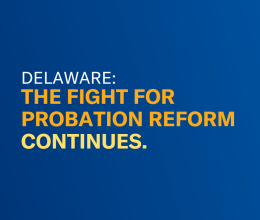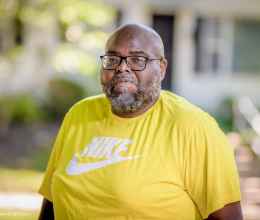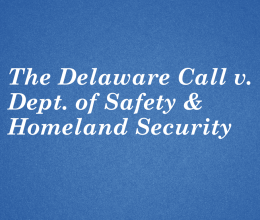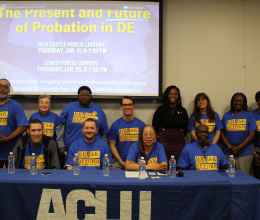This online resource tells you about your basic rights. It is not a substitute for legal advice. You should contact an attorney if you have been arrested or believe that your rights have been violated.
What if law enforcement officers stop me on the streets?
You do not have to answer any questions. You can say, "I do not want to talk to you" and walk away calmly. Or, if you do not feel comfortable doing that, you can ask if you are free to go. If the answer is yes, you can consider just walking away. Do not run from the officer. If the officer says you are not under arrest, but you are not free to go, then you are being detained. Being detained is not the same as being arrested, though an arrest could follow. The police can pat down the outside of your clothing only if they have "reasonable suspicion" (i.e., an objective reason to suspect) that you might be armed and dangerous. If they search any more than this, say clearly, "I do not consent to a search." If they keep searching anyway, do not physically resist them. You do not need to answer any questions if you are detained or arrested, except that the police may ask for your name once you have been detained, and you can be arrested in some states for refusing to provide it.
What if law enforcement officers stop me in my car?
Keep your hands where the police can see them. You must show your drivers license, registration and proof of insurance if you are asked for these documents. Officers can also ask you to step outside of the car, and they may separate passengers and drivers from each other to question them and compare their answers, but no one has to answer any questions. The police cannot search your car unless you give them your consent, which you do not have to give, or unless they have "probable cause" to believe (i.e., knowledge of facts sufficient to support a reasonable belief) that criminal activity is likely taking place, that you have been involved in a crime, or that you have evidence of a crime in your car. If you do not want your car searched, clearly state that you do not consent. The officer cannot use your refusal to give consent as a basis for doing a search.
What should I do if law enforcement officers arrest me?
The officer must advise you of your constitutional rights to remain silent, to an attorney, and to have an attorney appointed if you cannot afford one. You should exercise all these rights, even if the officers don't tell you about them. Do not tell the police anything except your name. Anything else you say can and will be used against you. Ask to see a lawyer immediately. Within a reasonable amount of time after your arrest or booking you have the right to a phone call. Law enforcement officers may not listen to a call you make to your lawyer, but they can listen to calls you make to other people. You must be taken before a judge as soon as possible—generally within 48 hours of your arrest at the latest. (See Section IV for information about arrests for noncriminal immigration violations.)
Do I have to answer questions if I have been arrested?
No. If you are arrested, you do not have to answer any questions or volunteer any information. Ask for a lawyer right away. Repeat this request to every officer who tries to talk to or question you. You should always talk to a lawyer before you decide to answer any questions.
What if I am treated badly by law enforcement officers?
Write down the officer's badge number, name or other identifying information. You have a right to ask the officer for this information. Try to find witnesses and their names and phone numbers. If you are injured, seek medical attention and take pictures of the injuries as soon as you can. Call a lawyer or contact your local ACLU office. You should also make a complaint to the law enforcement office responsible for the treatment.










